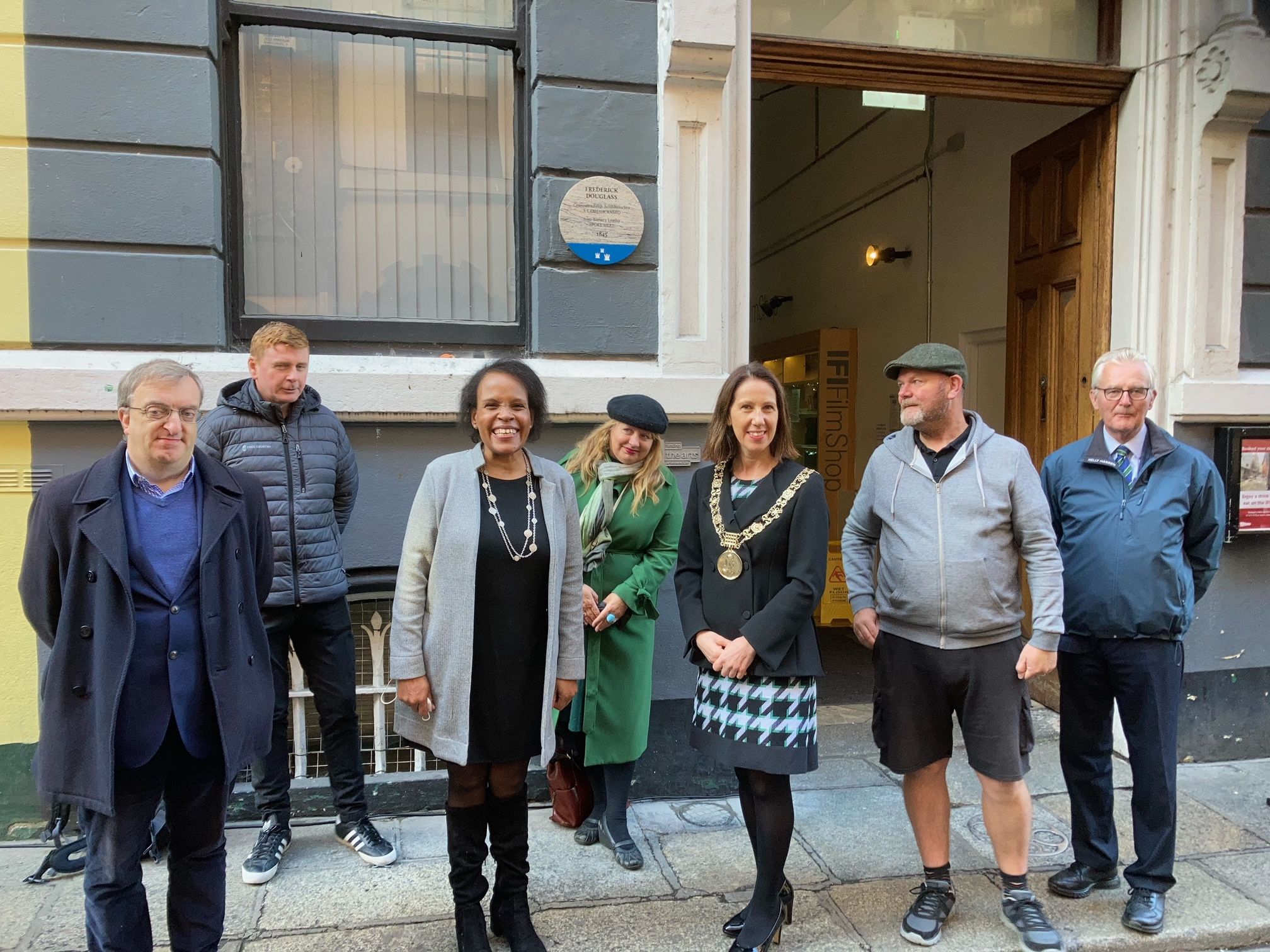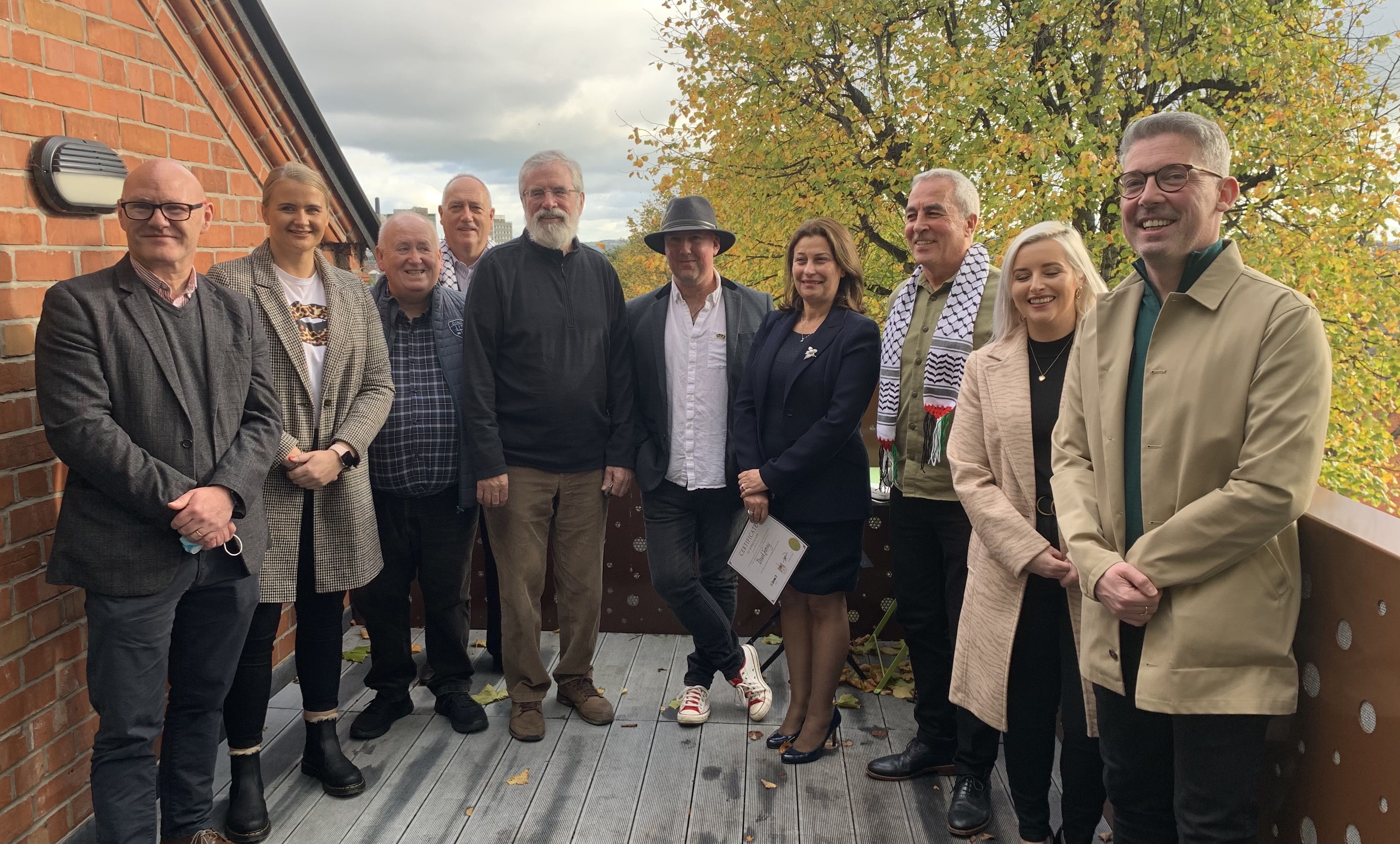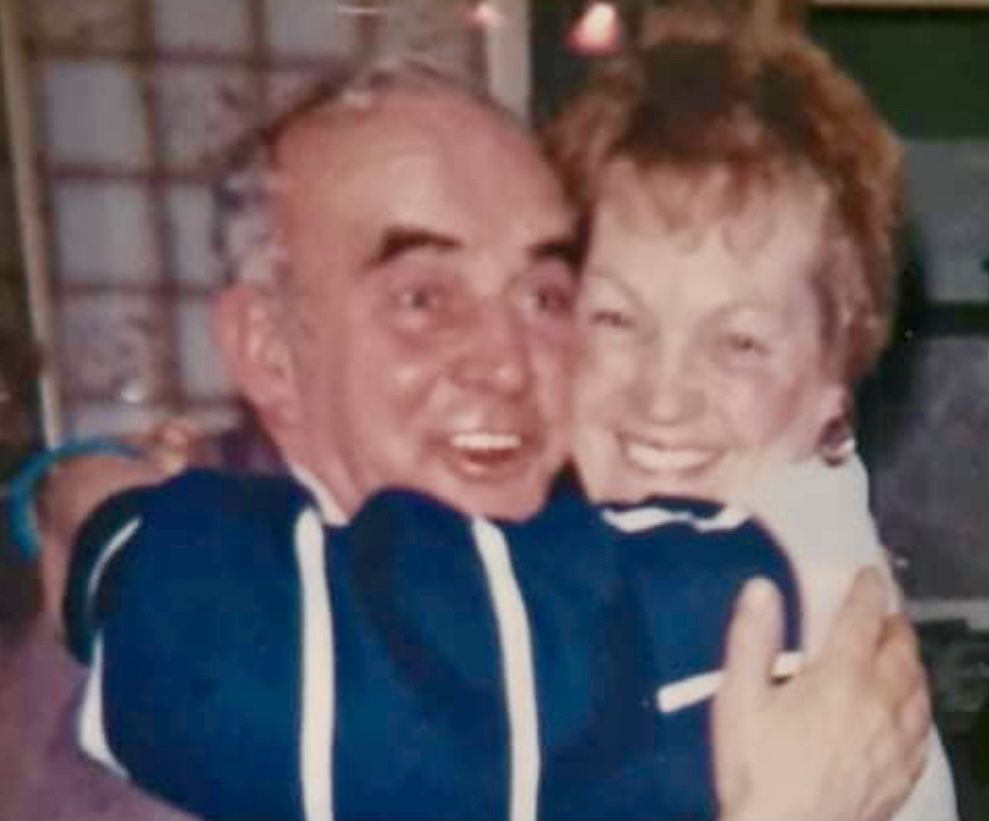ALICE Toner lived in Ballymurphy Drive, not far from our house in Divismore Park. I was deeply saddened by her death. I knew Alice and her husband Fra all of my adult life. Like my own family, they moved into Ballymurphy shortly after it was built. She and Fra were long-standing republicans.
Alice was born Alice Scullion in 1929. She was from Varna Street in the Falls area. Varna Street is now gone – a victim of redevelopment, but it was situated around where Osman Street is now. Alice was born just eight years after partition was imposed. Her family suffered under the apartheid system imposed by the unionist regime at Stormont. Unemployment and poverty were widespread along with the denial of the vote in local elections and the gerrymandering of electoral boundaries. It was almost impossible to get a house if you were a Catholic.
In the late 1940s Alice met and fell in love with Francie Toner. Through the first years of their marriage they and their three children lived in one room in Alice’s family home in Varna Street. In the early 1950s they were offered a house in Ballymurphy, on the slopes of the Black Mountain. They moved into 24 Ballymurphy Drive. Unfortunately, there were steps up to the front door and Alice and Fra needed a ground-level home to address the needs of their daughter Theresa.
Alice was an extraordinary woman, immensely strong and courageous, a mother, a grandmother, a great grandmother.
The family moved across the street to 27 Ballymurphy Drive and remain there to this day. The three children became 13 – Eilish, Kathleen, Carmel, Bernie, Roisin, Annemarie, Michael, Jim and Gerard, and the late Philomena, Frankie and Theresa.
The war years were tough. The British Army occupied the area. Internment saw the Ballymurphy Massacre in which 11 local people were killed. Others died during those harsh years, including Alice and Fra’s son Frankie. He was shot by the UVF on 12 May 1982 while working in his brother-in-law’s fruit shop on the Antrim Road. Two other people were wounded. Frankie was married with four children. Despite this personal trauma, Alice and Fra continued to work for the Ballymurphy community and their door was always open to those in need.
Alice was an extraordinary woman, immensely strong and courageous, a mother, a grandmother, a great grandmother. She lived through tumultuous and difficult times, faced danger head-on and never flinched, whether it was raids on her home or on the streets of Ballymurphy. While she never fully recovered from Frankie’s death, she never gave up.
For years Fra ran the Republican Prisoners’ Transport. He organised the small fleet of around six dilapidated minibuses that were used to bring families to visit loved ones in the various prisons; Crumlin Road, Long Kesh, Armagh and Portlaoise. He worked with Tom Cahill to raise money to keep the buses on the road and drove families to the prisons. The journeys to the prisons were dangerous and hazardous for drivers and families. They suffered constant harassment by the British Army, RUC and UDR. The buses and families would be stopped and searched. Sometimes they would be held for several hours. One comrade of Fra’s, Thomas McGuigan, remembers: “It was very hard on the children. It was freezing in winter and too hot in summer.” Fra was himself targeted by loyalists. Thomas McGuigan remembers: “It was just past the West Circular Road, outside the Orange Hall. Fra always drove past around 2pm so he was an easy target. The gunman opened fire and shot Fra several times at the wheel. He survived but one bullet was lodged too close to his spine to be removed. He was always in pain after then, never the same, and he died a few years later.”
Fra was a great slagger. A very popular support for the families of prisoners, mostly women who trekked to the gaols for years. Fra died in 2002. Alice died at home on October 13. Local republican Liam Stone described them well: “Lovely people,” he said.
I want to extend my sincerest condolences to Alice’s family and friends. Ballymurphy, her family and Ireland have lost a warrior woman. Despite all her trials and tribulations she never lost her wonderful warm smile. That is my abiding memory of her.
Dublin’s Douglass plaque a fitting tribute
HISTORY: Lord Mayor Alison Gilliland and historian Cecelia Hartsell with attendees at the unveiling
LAST Thursday Ardmhéara Bhaile Átha Cliath, Alison Gilliland, unveiled a Dublin City Council plaque in memory of the visit to that city in 1845 of the African-American anti-slavery leader Frederick Douglass. The plaque is on the Irish Film Institute (IFI) building in Eustace Street, Temple Bar, which was formerly the meeting house of the Society of Friends.
It was also formerly the Eagle Tavern, where the Dublin United Irish Society met in the 1790s. The proposal for a plaque was the idea of Sinn Féin Councillor Mícheál Mac Donncha, who is chair of the Dublin City Council Commemorations and Naming Committee.
Micheál said: “This plaque to Frederick Douglass sees the great African-American anti-slavery leader recognised by our city for his immense contribution to human liberty and progress. It is appropriate that this site links the United Irish Society, which met here in the 1790s, the Society of Friends, which hosted Frederick Douglass and still meets on this street, and the Irish Film Institute, a cultural hub of Dublin. Acts of commemoration such as this serve to remind us that while slavery was abolished in the United States, racism persists and needs to be opposed vigorously in all countries including our own.”
Among those who spoke at the event was historian and author Cecelia Hartsell, who spoke of Douglass’s life and his visit to Ireland. Professor Margaret Kelleher, speaking for the IFI, said: “We at the IFI are very proud to mark today not only such a historic event but also his continuing legacy and inspiration.”
A moving song for Palestine
SOLIDARITY: The launch of the new song – Davie Furey is between Gerry Adams and Palestinian Ambassador Dr Jilan Abdalmajid
DAVIE Furey is a Laois man. He is a singer-songwriter and a fine musician. He describes his influences as “Woody Guthrie, Luke Kelly, Tracy Chapman, Billy Bragg, Joni Mitchell, Bob Dylan and a whole host of other songwriters who, at times, reflected on world events through their music.”
A wee while ago he told me he had written a song about Palestine and asked if I would listen to it. I thought it was excellent. It unashamedly supports the people of Palestine and is opposed to the actions of the Israeli state. It is a personal song about the experience of Palestinian families and especially of the children. Davie says: “I believe that the Palestinian people have been bullied, oppressed and abused for many years now. This song is for those proud people of Palestine.”
Ag seoladh amhrán nua @daviefurey “The Rain That Falls on Palestine” i @JamesConnollyVC inniu.
— Senator Niall Ó Donnghaile ⭕️ (@NiallSF) October 22, 2021
A moving song for Palestine launched at the Áras today in the company of Ambassador Abdalmajid @IrePalestine
Solidarity with the Palestinian people always strong in Ireland’s 2nd City pic.twitter.com/ZhIg6viW6Y
The top room in Áras Uí Chonghaile was the venue on Friday lunchtime. Pat Sheehan said a few words about his experience of travelling to the occupied territories and to the Gaza Strip and his shock at the conditions under which the Palestinian people are forced to live. He recalled a visit to Jerusalem and witnessing the expulsion of a Palestinian family from their home of over 40 years by Israeli settlers.
The Palestinian Ambassador, Dr Jilan Abdalmajid, thanked all of those who had come in solidarity to the event and she especially thanked Davie, presenting him with a Certificate of Appreciation. The song was warmly welcomed by the audience and Davie was embraced and thanked for taking this initiative.
If you would like to hear the song ’ visit Davie’s website or download from iTunes. All money raised will go to Palestinian charities in Gaza and the occupied territories.
Colin Powell: slaver truth of Irish roots
I WAS also sorry to hear of the death of Colin Powell. He was Secretary of State to President Bush from 2001 to 2005, so we met with him several times in those years.
He was always courteous and had a quiet sense of humour. He told us once that he got his name Colin from his family connection to Ireland but that it was not a happy connection.
He was a descendant of Sir Eyre Coote, a scion of the Coote family, who were powerful landlords in Cavan and Clare. Coote was Governor of Jamaica in the early 1800s and Powell's family were slaves in the Governor's house. Eyre Coote made one of the slave girls pregnant. She was Colin Powell's great, great, great grandmother.
I believe that Secretary Powell regretted the position he took on Iraq and his support for the invasion and a war on the basis of intelligence that was later shown to be false.
This was a monumental mistake.
He later moved away from the Republican Party and publicly endorsed Barack Obama in his run for President.








